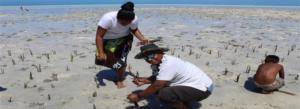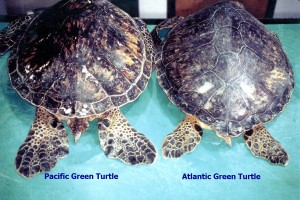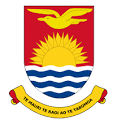Biodiversity Conservation Unit
The Biodiversity and Conservation Unit is responsible for implementing biodiversity and conservation programmes at the village, island, national, regional and international levels. The Unit is also handling the Convention on Biological Diversity (CBD) and its Protocols, World Heritage Convention, and the Ramsar Convention on Wetlands in which Kiribati is a party to.

The goal or objectives that have formed the basis of the work activities of the Unit includes the following;
To enhance the storage, protection and dissemination of knowledge, and information to the general public on the conservation, sustainable use and management of island biodiversity;
To improve and strengthen national coordination, collaboration and cooperation between national stakeholders;
To build on and strengthen national capacity and mechanisms to effectively manage, conserve and sustainably utilize the island biodiversity at all levels of society;
To strengthen national capacity to effectively respond to the impacts of climate change on the island biodiversity;
To facilitate long-term planning and preparations to respond to the impacts of global climate change in order to build the resilience of the environment through coherent biodiversity conservation and management programs undertaken at national level.
The following outlines important projects and activities that are implemented by this Unit
Kiribati Adaptation Project on Mangrove Replanting & Outreach Project
The three main objectives of this project component are:
– Promote and undertake mangrove planting as both a mitigation and adaptation options for coastline protection and to introduce associated marine resources that support local livelihoods. This would be through island consultations to get consent, support and interest of interested grassroots communities;
– Promote mangrove conservation and management outreach programme to ensure sustainability and community buy in of the project at all levels of society.
– Update mangrove data and demarcation of areas covered with mangrove forests on maps of targeted islands.
Programme of Work on Protected Areas (POWPA)
The main component of this project is to establish and enhance community based protected areas at the national level.
The implementation of the POWPA projects in Kiribati compliments ongoing Government’s efforts in identifying and establishing potential areas of biodiversity significance (both nationally and internationally), as protected areas at the national level, particularly within islands in the Gilberts and Line Islands Groups.
Phase I of the PoWPA project involves consultation and survey in getting a picture of which potential sites needs to be protected base on the species richness of the island.
Phase II is the implementation of KBA (Key Biodiversity Areas). This was helped by a local consultant in doing desktop analysis of which sites are more potential to develop or implement KBA’s at.
Ramsar – Small Grant Programme
The objective of the project is the conservation and wise use of all wetlands through local, national and regional actions and international cooperation to achieve sustainable development worldwide. Nooto village situated at North Tarawa has now been selected and designated as Ramsar Site for the whole of North Tarawa for the protection of important wetlands (mainly mangroves ecosystems including intertidal flats on both the lagoon and ocean sides of Nooto village) that supports local livelihoods and income generation at a village level.
Implementation of this project at Nooto village is voluntarily, where Nooto community are hosting the project site and running it using their own resources to safeguard existing and planted mangroves within this village.
Marine Turtle Monitoring Project
The objective of this project is the conservation of marine turtles in Kiribati. Turtle monitoring is ongoing in Tarawa and North Tarawa, including Kiritimati Island. Local counterparts were selected to undertake monitoring and turtle tagging (where possible) in the areas (North Tarawa). Capacity building on turtle tagging and monitoring were offered from SPREP’s turtle specialist. This training has been duplicated also to local counterparts, who have been involved in this project on a volunteer basis.

Kiribati National Reports to CBD (Convention on Biological Diversity)
This report was to be submitted by Government of Kiribati to Secretariat of the CBD on a biannual basis, to meet its national reporting obligations, in its capacity as Party to this Convention. This report provides detailed information regarding the status and trends of biodiversity existing in Kiribati as a Party.
Kiribati is instrumental in developing and completing this report with the assistance of members of the National Biodiversity Planning Committee. This Committee is multi-disciplinary in nature, where members are drawn from government sectors, NGOs and private business, which have interactions with or impact the biodiversity at national, island or village levels on a day to day basis.
